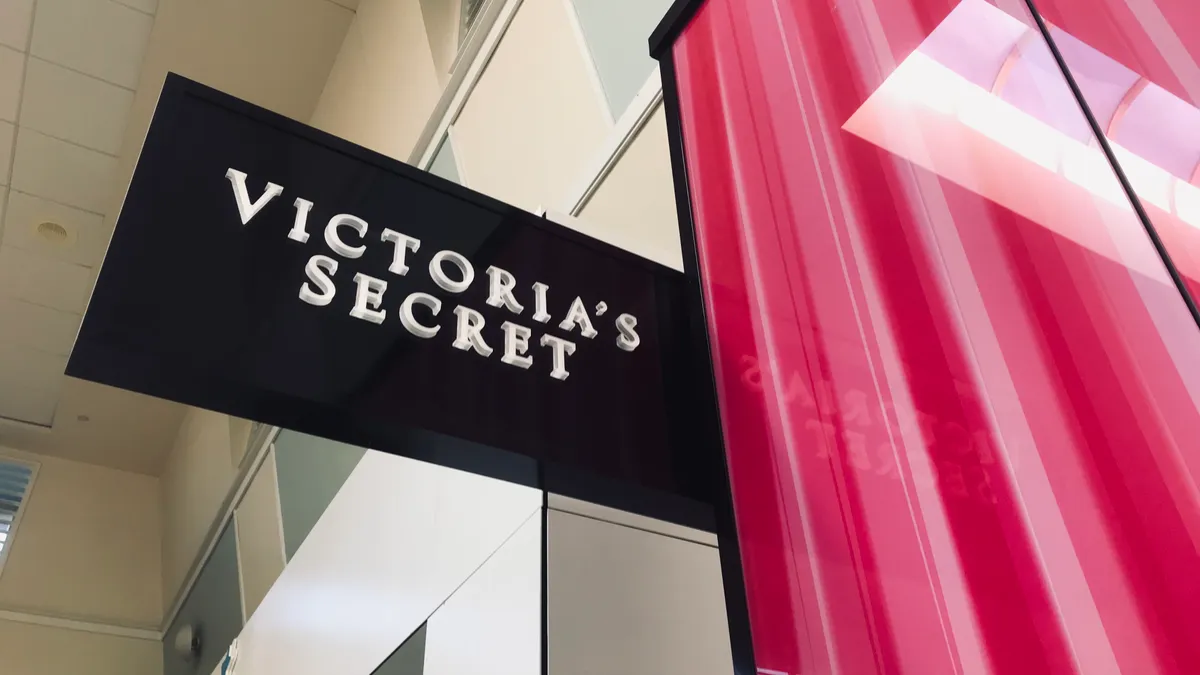Dive Brief:
-
Joining several retailers reporting an early-year comeback, L Brands on Wednesday said first quarter net sales rose 83% to $3 billion. Compared to 2019, net sales rose 15%. Bath & Body Works sales rose 93% compared to 2020 and 60% compared to 2019; Victoria's Secret sales rose 74% compared to 2020 but fell 7% compared to 2019.
-
Excluding locations closed due to the pandemic for four or more straight days, store comps rose 7% year over year, rising 12% at Bath & Body Works and 3% at Victoria's Secret. Adding in e-commerce, comps rose 21%: 16% at Bath & Body Works and 25% at Victoria's Secret. Net income nearly tripled to $277 million, per a company press release.
-
L Brands also named chief financial officers for what in August will be two separate companies. Wendy Arlin, L Brands senior vice president of finance and controller, will become Bath & Body Works CFO, according to another press release. Tim Johnson, previously Big Lots CFO and chief administrative officer, will become Victoria's Secret CFO. As previously announced, L Brands CFO Stuart Burgdoerfer will then retire.
Dive Insight:
Bath & Body Works had a blockbuster quarter, solidifying L Brands' thesis that the brand should come out of the shadows and operate as its own company.
But the real story at the once massive conglomerate is the comeback of its other brand. Victoria's Secret in recent years relentlessly gave up share and sales in the lingerie market, as many consumers rebelled against its sexualized marketing and designs. Upstarts like Lively, ThirdLove and American Eagle's Aerie, with marketing that, by contrast, emphasized fit and empowerment, have taken advantage.
Now, Victoria's Secret, along with its sportier Pink brand, is on the mend, thanks to marketing changes (its angels fashion show is finally over) and structural adjustments. In one sense, the banner paid dearly for its many store closures: The company said in its release that the net closure of 233 company-operated stores since the first quarter of 2019 contributed to Victoria's Secret's two-year sales decline. The brand is making up some ground online, with those sales up 69% year over year and 44% since 2019 to $521 million.
But selling less merchandise in recent quarters hasn't hurt Victoria's Secret. In fact, as BMO Capital Markets Managing Director Simeon Siegel said in a Wednesday client note, the brand is "making more by selling less." Dollars per footfall in stores are up some 80%, according to the company's earnings presentation. And margins have ballooned thanks to fewer markdowns, Siegel noted, adding that, while sales were down from 2019, its EBIT dollars expanded by a factor of about 7.5 in the same period. The brand's gross margin rate expanded by 1,100 basis points vs. 2019, per the earnings presentation.
Much of the first quarter achievement at both brands would have been impossible without the U.S. government's pandemic relief. Noting the difficultly of quantifying the impact, L Brands in a conference call script nevertheless estimated that "sales were positively impacted by approximately $125 million ($50 million at Bath & Body Works and $75 million at Victoria's Secret), with a positive impact to operating income of approximately $80 million ($30 million at Bath & Body Works and $50 million at Victoria's Secret)."
















